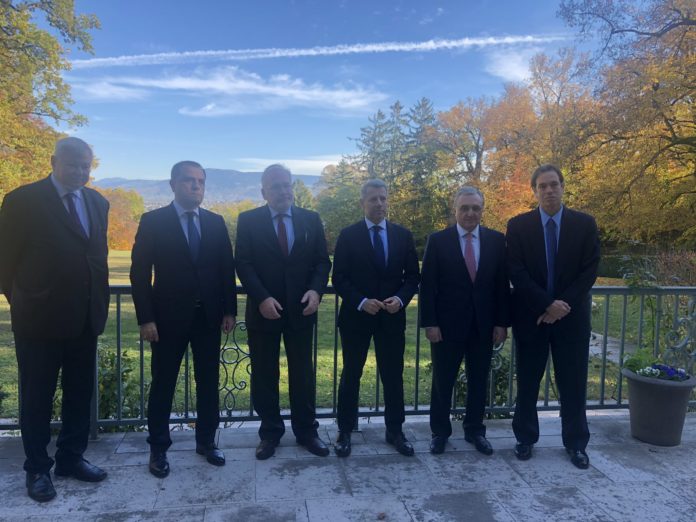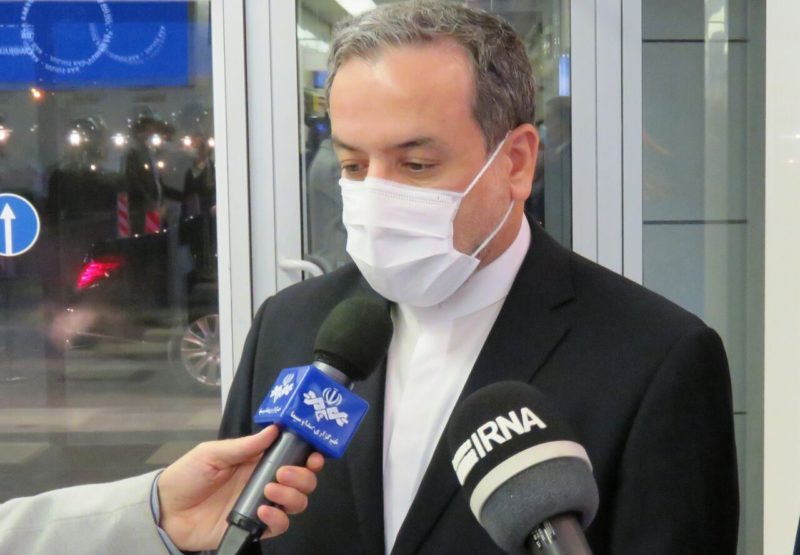GENEVA/MOSCOW (OSCE Minsk Group, AFP, Financial Tribune, IRNA, Al Jazeera, DW) – The October 30 attempt of the OSCE Minsk Group to broker a ceasefire failed, with only some partial results, so Armenian Prime Minister Nikol Pashinyan appealed to Russia directly for mediation, while Iran presented its own peace plan.
The Co-Chairs of the OSCE Minsk Group (Igor Popov of the Russian Federation, Stephane Visconti of France, and Andrew Schofer of the United States of America), according to their October 30 statement, met separately and jointly with Armenian Foreign Minister Zohrab Mnatsakanyan and Azerbaijani Foreign Minister Jeyhun Bayramov in Geneva that same day. The Personal Representative of the OSCE Chairperson in Office (PRCiO) Andrzej Kasprzyk also participated in the meetings. They also held consultations with UN High Commissioner for Refugees Filippo Grandi and International Committee of the Red Cross President Peter Maurer.
The Co-Chairs once again called on the sides to implement, in full, their commitments, including the immediate establishment of a humanitarian ceasefire, in accordance with the October 10 Moscow Joint Statement, which the sides reaffirmed with Paris on October 17 and in Washington on October 25.
While this did not happen, according to the statement, the sides did agree to the following steps to be taken on “an urgent basis”:
- “The sides will not deliberately target civilian populations or non-military objects in accordance with international humanitarian law;
- The sides will actively engage in the implementation of the recovery and exchange of remains on the battlefield by providing the ICRC and PRCiO the necessary safety guarantees for facilitation;
- The sides will deliver to the ICRC and PRCiO, within one week, a list of currently detained prisoners of war for the purposes of providing access and eventual exchange;
- The sides will provide in writing comments and questions related to possible ceasefire verification mechanisms in accordance with item 2 of the October 10 joint statement.”
Upon the failure of this ceasefire effort, while fighting continued, Prime Minister Pashinyan sent a formal letter on October 31 to Russian President Vladimir Putin asking for “urgent” consultations on security assistance. The Russian Foreign Ministry declared Russia would provide “all necessary assistance” if fighting spreads to the territory of the Republic of Armenia. It called on both sides to implement an immediate ceasefire and begin substantive talks.
Foreign Ministry spokesperson Maria Zakharova stated in televised remarks that Russia would discuss “concrete formats” of assistance to Armenia.









